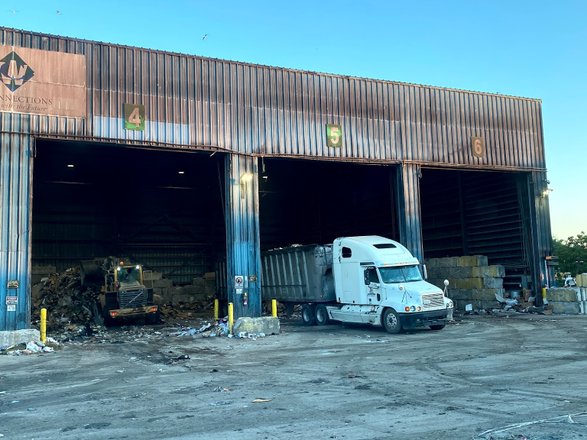
Job openings at Department of Solid Waste Management
Department of Solid Waste Management is currently looking for individuals with solid waste management experience for job openings. If you are interested in working in this department, you should apply online. The agency offers competitive benefits and pay. The benefits include life insurance and short term disability insurance. Stock purchase plans are available as well as company matches for 401K accounts. The company also offers personal days.
Locations of facilities
The Department of Solid Waste Management of Miami-Dade County has a number of services available for the community. Their services include garbage collection, recycling, and bulk trash removal. The Department is the largest federally owned waste collection system in the southeast United States. They also have one of the best-equipped waste-to-energy plants in the world. Services include residential trash collection as well as commercial recycling.

Miami's facilities include Covanta’s waste-to–energy facility. It was commercially operational since 1985. The facility is managed by the Miami-Dade County. The county recently approved a Fourth Amended and Restated Operations and Management Agreement. The County also expressed an interest to build a new facility that uses a mass burn combustion process.
Recycling rates in Miami-Dade County
The Miami-Dade County recycling rate is 18. The county uses a calculation which adds up two distinct categories of recyclable materials. This is due to contamination. Florida's biggest source of recycled materials is commercial waste. Miami-Dade does NOT collect commercial waste and therefore is not required reporting recycling numbers.
Compology, a company providing camera-based measuring services, has recently joined Miami-Dade County. This partnership includes the installation cameras in waste and recycling containers. This will allow city officials to track the type and amount of recyclable materials.
Service charges
The competitive nature of waste management in Miami makes it a highly competitive industry. There is no price regulation for waste disposal. The haulers only charge what they think it's worth to remove your waste. Businesses can benefit from local recycling programs, which cut the volume of trash and can lower the total cost of services. To reduce hauling costs, businesses can save money by compacting recyclables.

Miami-Dade County's Department of Solid Waste Management has seen its costs rise and has decided to increase customer fees. The proposed increase will cost households $25 a year, or about $2.08 per month. However, the proposed fee increase won't cover the projected deficits in the department's $350 million operating budget, and more subsidies will be required in the coming years.
FAQ
What role does a manager play in a company?
The role of a manager varies from one industry to another.
A manager is generally responsible for overseeing the day to day operations of a company.
He/she is responsible for ensuring that the company meets all its financial obligations and produces the goods or services customers want.
He/she is responsible for ensuring that employees comply with all regulations and follow quality standards.
He/she oversees marketing campaigns and plans new products.
What is the difference between a project and a program?
A project is temporary; a program is permanent.
Projects usually have a goal and a deadline.
This is often done by a group of people who report to one another.
A program usually has a set of goals and objectives.
It is typically done by one person.
What are the most common errors made by managers?
Sometimes managers make it harder for their employees than is necessary.
They may not assign enough responsibilities to staff members and provide them with inadequate support.
Additionally, many managers lack communication skills that are necessary to motivate and direct their teams.
Managers sometimes set unrealistic expectations of their teams.
Some managers may try to solve every problem themselves instead of delegating responsibility to others.
What are the three basic management styles?
The three basic management styles are: authoritarian, laissez-faire, and participative. Each style has its own strengths and weaknesses. What style do you prefer? Why?
Autoritarian – The leader sets the direction for everyone and expects them to follow. This style is most effective when an organization is large, stable, and well-run.
Laissez-faire – The leader gives each individual the freedom to make decisions for themselves. This style works best when an organization is small and dynamic.
Participative: The leader listens to everyone's ideas and suggestions. This style is most effective in smaller organizations, where everyone feels valued.
Statistics
- Our program is 100% engineered for your success. (online.uc.edu)
- The average salary for financial advisors in 2021 is around $60,000 per year, with the top 10% of the profession making more than $111,000 per year. (wgu.edu)
- The BLS says that financial services jobs like banking are expected to grow 4% by 2030, about as fast as the national average. (wgu.edu)
- As of 2020, personal bankers or tellers make an average of $32,620 per year, according to the BLS. (wgu.edu)
- UpCounsel accepts only the top 5 percent of lawyers on its site. (upcounsel.com)
External Links
How To
How does Lean Manufacturing work?
Lean Manufacturing processes are used to reduce waste and improve efficiency through structured methods. They were developed in Japan by Toyota Motor Corporation (in the 1980s). It was designed to produce high-quality products at lower prices while maintaining their quality. Lean manufacturing focuses on eliminating unnecessary steps and activities from the production process. It includes five main elements: pull systems (continuous improvement), continuous improvement (just-in-time), kaizen (5S), and continuous change (continuous changes). The production of only what the customer needs without extra work is called pull systems. Continuous improvement is the continuous improvement of existing processes. Just-in-time refers to when components and materials are delivered directly to the point where they are needed. Kaizen stands for continuous improvement. Kaizen can be described as a process of making small improvements continuously. Five-S stands for sort. It is also the acronym for shine, standardize (standardize), and sustain. These five elements can be combined to achieve the best possible results.
Lean Production System
Six key concepts make up the lean manufacturing system.
-
Flow - focus on moving material and information as close to customers as possible;
-
Value stream mapping is the ability to divide a process into smaller tasks, and then create a flowchart that shows the entire process.
-
Five S's: Sort, Shine Standardize, Sustain, Set In Order, Shine and Shine
-
Kanban – visual signals like colored tape, stickers or other visual cues are used to keep track inventory.
-
Theory of constraints: identify bottlenecks in your process and eliminate them using lean tools, such as kanban board.
-
Just-in Time - Send components and material directly to the point-of-use;
-
Continuous improvement: Make incremental improvements to the process instead of overhauling it completely.